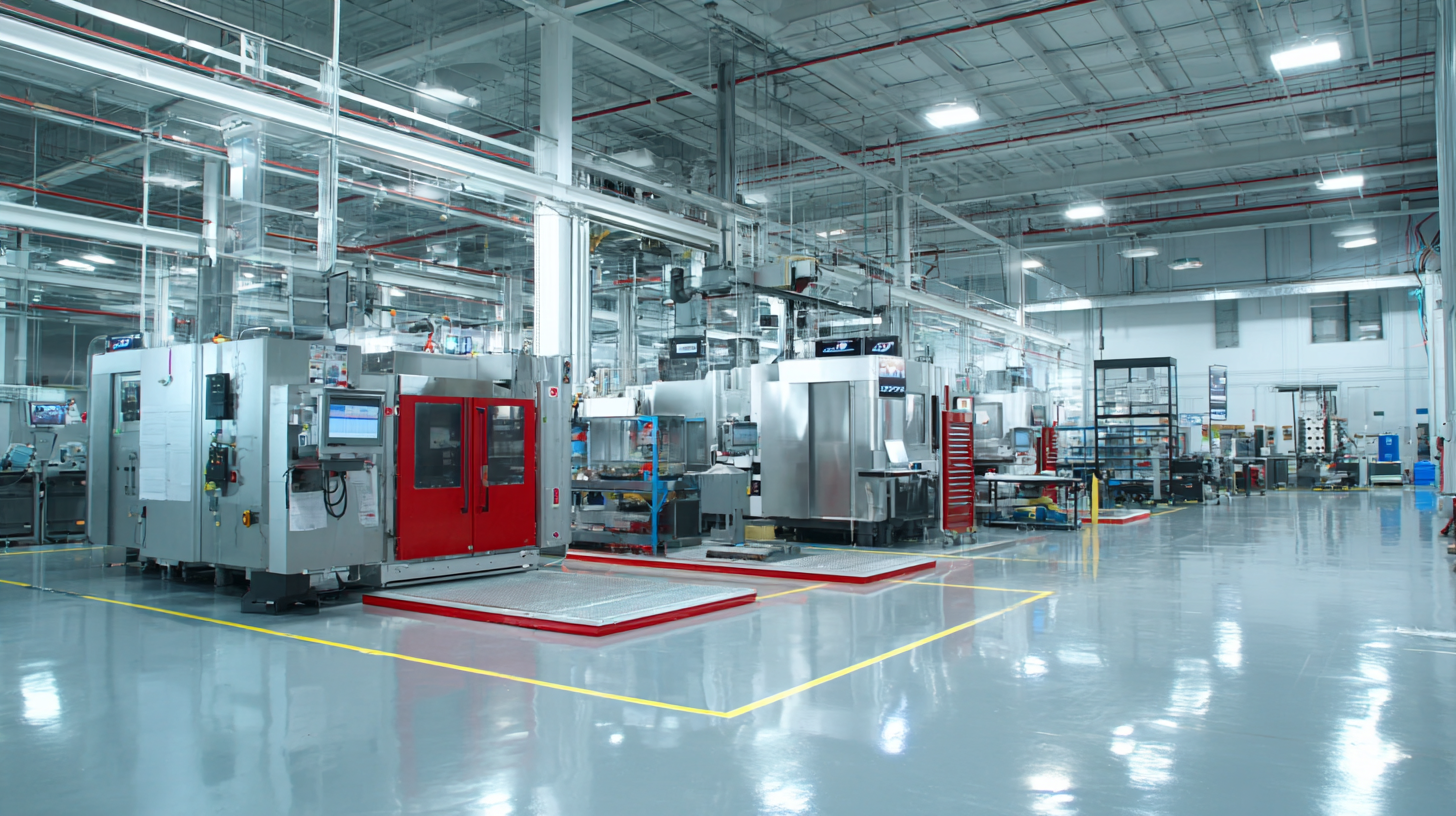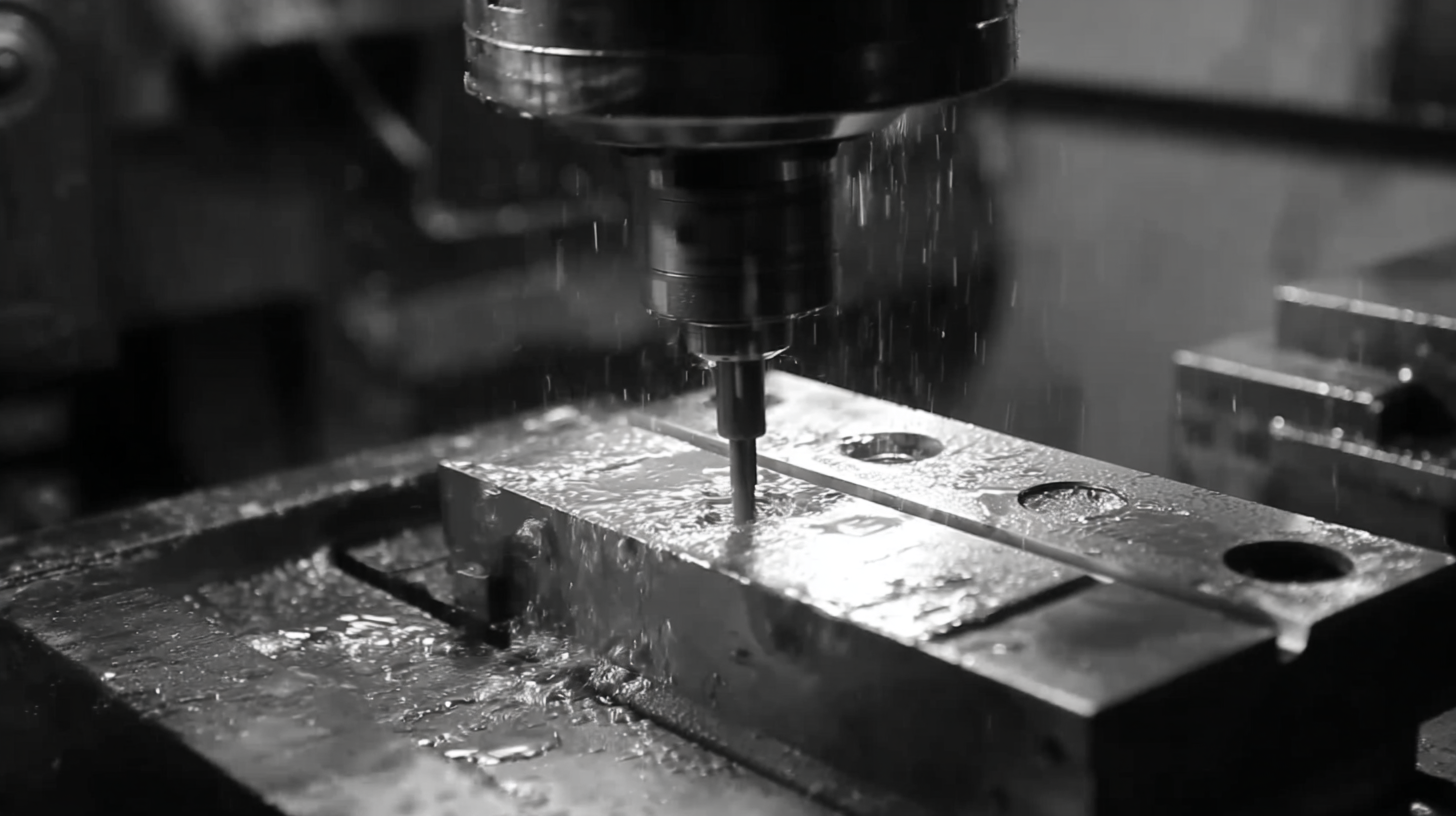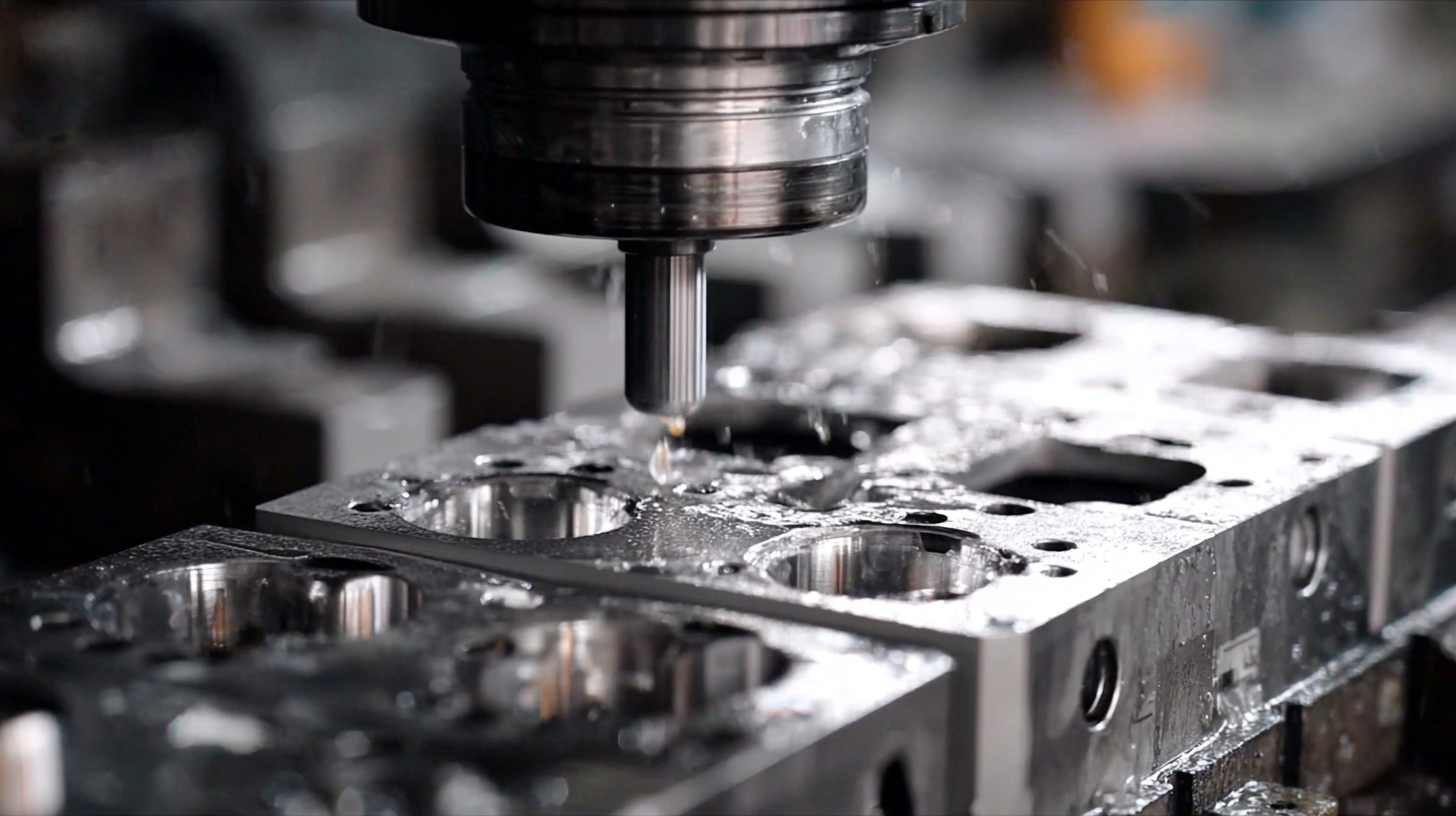


The automotive industry is a pivotal sector of the global economy, with a projected market value exceeding $3 trillion by 2025, as per industry reports. Within this expansive landscape, mold manufacturing plays a crucial role, impacting everything from vehicle aesthetics to functionality.
 High-quality molds are essential for producing intricate components with precision, which directly affects production efficiency and overall vehicle performance. According to a recent study by Research and Markets, advancements in mold manufacturing technologies have shown potential for reducing production costs by up to 20% while improving lead times by approximately 30%. As automotive manufacturers increasingly prioritize innovation and sustainability, understanding the implications of effective mold manufacturing practices becomes vital for maintaining competitive advantage and meeting evolving consumer demands.
This blog will delve into the significance of mold manufacturing in automotive applications, exploring technological trends, best practices, and future prospects.
High-quality molds are essential for producing intricate components with precision, which directly affects production efficiency and overall vehicle performance. According to a recent study by Research and Markets, advancements in mold manufacturing technologies have shown potential for reducing production costs by up to 20% while improving lead times by approximately 30%. As automotive manufacturers increasingly prioritize innovation and sustainability, understanding the implications of effective mold manufacturing practices becomes vital for maintaining competitive advantage and meeting evolving consumer demands.
This blog will delve into the significance of mold manufacturing in automotive applications, exploring technological trends, best practices, and future prospects.
Mold manufacturing plays a critical role in the automotive industry supply chain, serving as the backbone for the production of various components used in vehicles. According to a report by Grand View Research, the global automotive mold market is projected to reach USD 7.18 billion by 2025, growing at a CAGR of 6.2%. This growth underscores the importance of precision in mold design and manufacturing, as well as the need for innovative practices that can drive efficiency in production processes.
In addition to meeting strict quality and performance standards, mold manufacturers must also adapt to the rapid evolution of automotive technologies, including electric vehicles (EVs) and advanced driver-assistance systems (ADAS). A study by MarketsandMarkets indicates that the EV market is expected to expand at a staggering CAGR of 22.1% from 2021 to 2026, further intensifying the demand for specialized molds that can accommodate lightweight materials and complex geometries. By aligning their capabilities with the industry's shifting needs, mold manufacturers are not only enhancing their competitive edge but also playing a vital role in ensuring the seamless integration of new technologies in vehicle assembly.
| Mold Type | Application Area | Material Used | Production Time (weeks) | Cost Estimate (USD) |
|---|---|---|---|---|
| Injection Mold | Body Components | Steel | 12 | $50,000 |
| Blow Mold | Fuel Tanks | Polyethylene | 10 | $30,000 |
| Compression Mold | Rubber Parts | Silicone | 8 | $20,000 |
| Die Cast Mold | Engine Components | Aluminum | 14 | $70,000 |
| Extrusion Mold | Weather Stripping | PVC | 6 | $15,000 |
The automotive industry has witnessed significant growth in mold manufacturing, driven by the increasing demand for precision components and innovative designs. According to a recent report by MarketsandMarkets, the global automotive mold market is expected to reach USD 11.57 billion by 2025, registering a compound annual growth rate (CAGR) of 5.9% from 2020. This surge can be attributed to advancements in technology and the rising production of electric vehicles, which require specialized mold designs to accommodate new materials and forms.
Moreover, the automotive sector's focus on sustainability has propelled the demand for lightweight products, creating new opportunities for mold manufacturers. A study by Grand View Research found that the integration of lightweight materials is anticipated to account for over 50% of the total material usage in automotive manufacturing by 2024. This shift necessitates innovative molding techniques to produce complex geometries without compromising structural integrity. The continued investment in advanced mold manufacturing technologies will not only enhance production efficiency but also improve the overall quality and performance of automotive components.
This chart illustrates the revenue growth in mold manufacturing within the automotive industry from 2019 to 2023. The steady increase in revenue reflects the rising demand for advanced mold manufacturing technologies in automotive applications.
The automotive industry is increasingly reliant on precision molds to enhance vehicle production efficiency. According to a report by Grand View Research, the global automotive molds market is expected to reach $25.5 billion by 2025, mainly driven by the rise of electric vehicles and lightweight materials, which require more sophisticated molding solutions.
 Precision molds play a critical role in manufacturing components with exact specifications, significantly reducing material waste and operational costs.
Precision molds play a critical role in manufacturing components with exact specifications, significantly reducing material waste and operational costs.
Moreover, a study by MarketsandMarkets indicates that implementing advanced molding technologies can improve production speed by up to 30%. This increased efficiency translates to faster turnaround times from design to market, allowing manufacturers to respond more rapidly to consumer demand. As automakers strive for sustainability, precision molds not only help in conserving resources but also enhance the overall quality of the vehicles produced, leading to higher customer satisfaction and safety standards. The integration of these advanced molding techniques represents a critical evolution in automotive manufacturing processes, underscoring their vital role in the industry's future.
When selecting a mold manufacturer for automotive parts, several crucial factors must be evaluated to ensure quality and efficiency. First, it's essential to consider the manufacturer's experience in the automotive sector. According to a report by Grand View Research, the global automotive mold market size is expected to reach $8.6 billion by 2025, driven by the increasing demand for lightweight and durable components. A manufacturer with a proven track record in producing high-precision molds can significantly influence production timelines and product reliability.
Another vital element is the technological capability of the mold manufacturer. The automotive industry is rapidly advancing, with new materials and technologies emerging. As noted by Research and Markets, the integration of Industry 4.0 innovations in mold manufacturing has the potential to improve operational efficiency by up to 30%. Ensure that the manufacturer employs advanced techniques, such as computer-aided design (CAD) and computer-aided manufacturing (CAM), to enhance mold design, reduce lead times, and improve part quality. This attention to technological advancement not only streamlines processes but also fosters innovations that can lead to competitive advantages in a saturated market.

The automotive industry is witnessing transformative changes driven by innovation and sustainable practices in mold manufacturing. As manufacturers strive to streamline production processes, they are increasingly adopting advanced technologies like 3D printing and automation. These innovative methods not only enhance efficiency but also reduce material waste, a key concern in today’s environmentally conscious market. By leveraging these technologies, automotive companies can produce intricate mold designs faster and with a higher degree of precision.
Tips for implementing sustainable practices in automotive mold manufacturing include evaluating the entire supply chain for eco-friendly materials and methods. Companies should consider investing in renewable energy sources to power manufacturing facilities, reducing their carbon footprint significantly. Additionally, regular training for employees on sustainability practices can foster a culture of environmental responsibility, ensuring that everyone contributes to the industry's shift toward greener production techniques.
Looking ahead, the automotive industry must prioritize recyclable materials in mold manufacturing. This not only aligns with global sustainability goals but also meets consumer demand for eco-conscious products. By innovating with circular economy principles, manufacturers can create molds that are not only functionally superior but also environmentally friendly, paving the way for a sustainable future in automotive applications.